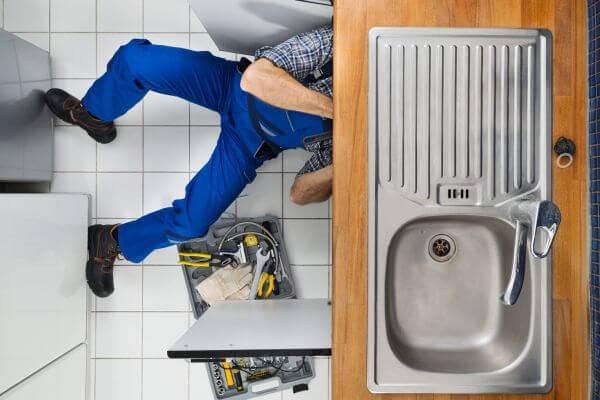Your home’s plumbing system is a critical component of your daily life, yet it often goes unnoticed until something goes wrong. Understanding the basics of your plumbing system can help you maintain it properly and prevent costly repairs. In this guide, we’ll break down the essentials of a home plumbing system, providing you with the knowledge needed to keep your pipes flowing smoothly.
The Components of a Home Plumbing System
Water Supply System
The water supply system is the lifeblood of your home’s plumbing. It brings fresh water into your home through a network of pipes that connect to a municipal water supply or a private well. The primary components of the water supply system include:
- Main Water Line: This is the pipe that brings water from the municipal supply or well into your home. It’s usually located underground and connects to the water meter.
- Shutoff Valves: These valves control the flow of water to your home. The main shutoff valve is typically located near where the main water line enters your home. Knowing its location is crucial in case of an emergency.
- Cold and Hot Water Lines: Once inside your home, the water is distributed through cold and hot water lines. The hot water is supplied by your water heater and then sent to fixtures like sinks, showers, and appliances.
Drain-Waste-Vent (DWV) System
The DWV system is responsible for removing wastewater and sewage from your home and venting gases to prevent them from building up inside. The key components of the DWV system include:
- Drain Pipes: These pipes carry wastewater away from sinks, toilets, showers, and appliances. They are typically made of PVC, cast iron, or ABS plastic.
- Waste Pipes: Waste pipes connect to drain pipes and transport sewage to the main sewer line or septic system.
- Vent Pipes: Vent pipes extend from your drain pipes to the roof of your home, allowing gases to escape and preventing pressure build-up in the plumbing system.
Fixtures and Appliances
Your home’s plumbing system also includes various fixtures and appliances that rely on a steady supply of water and proper drainage. These include:
- Faucets and Sinks: Found in kitchens and bathrooms, these fixtures are connected to both hot and cold water lines and the drain system.
- Toilets: Toilets connect to the water supply line and the DWV system, ensuring efficient waste removal.
- Water Heater: This appliance heats water and supplies it to fixtures throughout your home.
- Washing Machines and Dishwashers: These appliances require a connection to both the water supply and the drainage system.
Common Plumbing Issues and Solutions
Leaky Faucets
Leaky faucets are a common problem that can waste significant amounts of water. They are often caused by worn-out washers or seals. Replacing these small components can usually resolve the issue.
Clogged Drains
Clogged drains are another frequent plumbing issue. They are typically caused by a buildup of hair, grease, or other debris. Using a drain snake or a plunger can often clear the blockage. For more persistent clogs, a plumber may need to be called to remove the obstruction.
Running Toilets
A running toilet can waste hundreds of gallons of water daily. This issue is usually caused by a faulty flapper valve. Replacing the flapper can typically fix the problem.

Preventative Maintenance Tips
Regular Inspections
Perform regular inspections of your plumbing system to catch issues early. Look for leaks, corrosion, and other signs of wear and tear, especially around fixtures and exposed pipes.
Water Pressure Monitoring
Keep an eye on your home’s water pressure. High water pressure can stress your pipes and lead to leaks. If your water pressure is consistently high, consider installing a pressure regulator.
Drain Cleaning
Avoid using chemical drain cleaners, which can damage your pipes. Instead, opt for a drain snake or a natural enzyme cleaner to keep your drains clear.
When to Call a Professional
While many plumbing issues can be resolved with DIY solutions, some situations require the expertise of a professional plumber. If you encounter problems like major leaks, burst pipes, or sewer line issues, it’s best to call in a professional to ensure the problem is addressed correctly and safely.
Conclusion
Understanding your home’s plumbing system is the first step in maintaining it effectively. By familiarizing yourself with its components and common issues, you can keep your system running smoothly and avoid costly repairs. Remember, regular maintenance and timely repairs are key to a long-lasting plumbing system.


